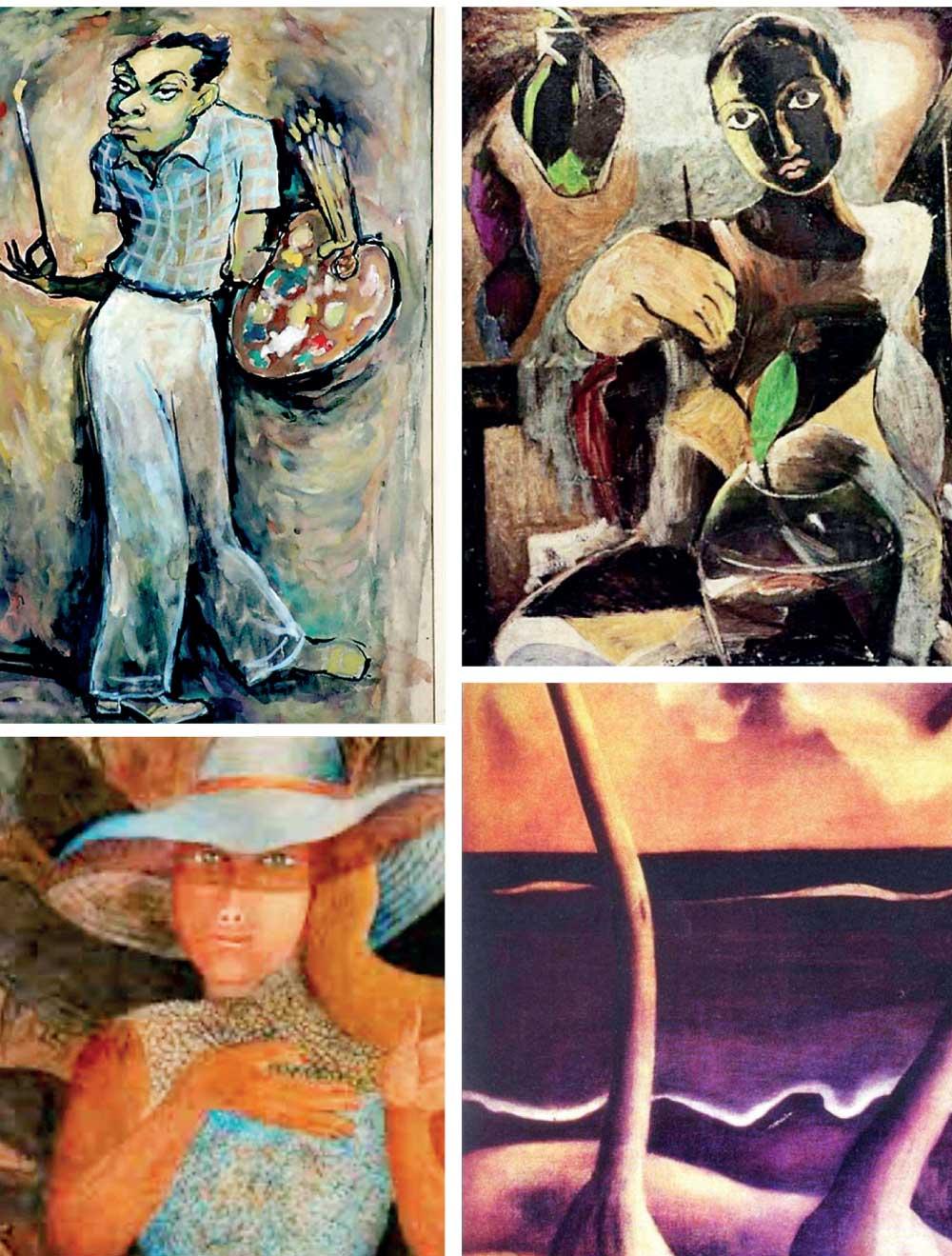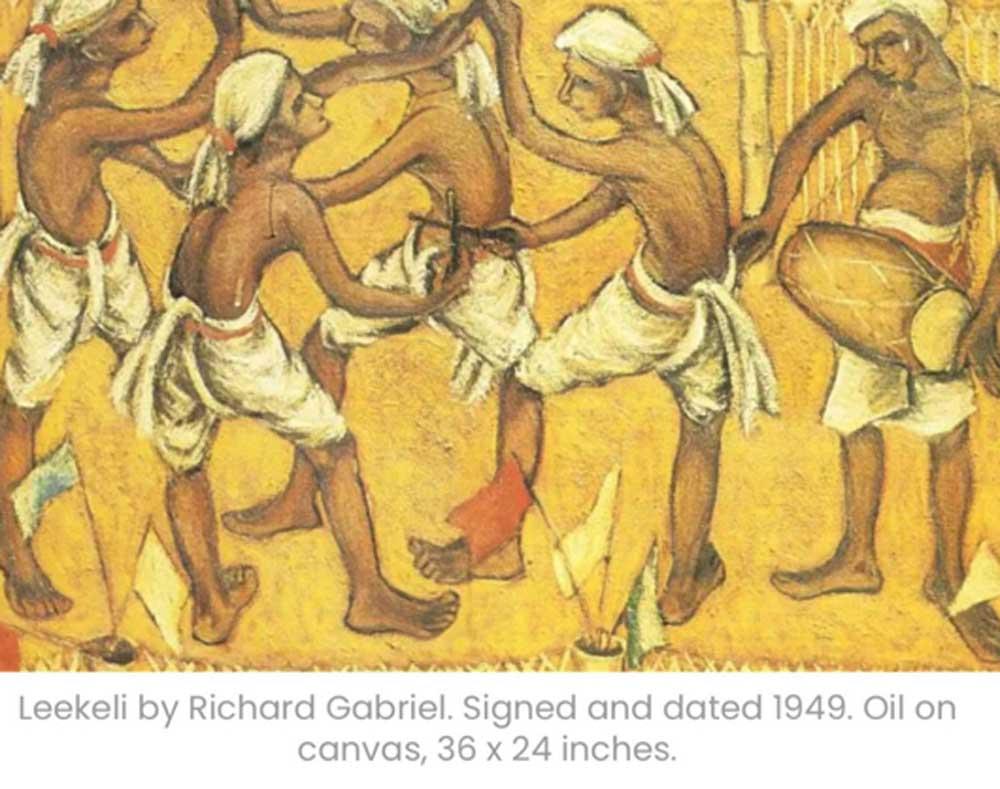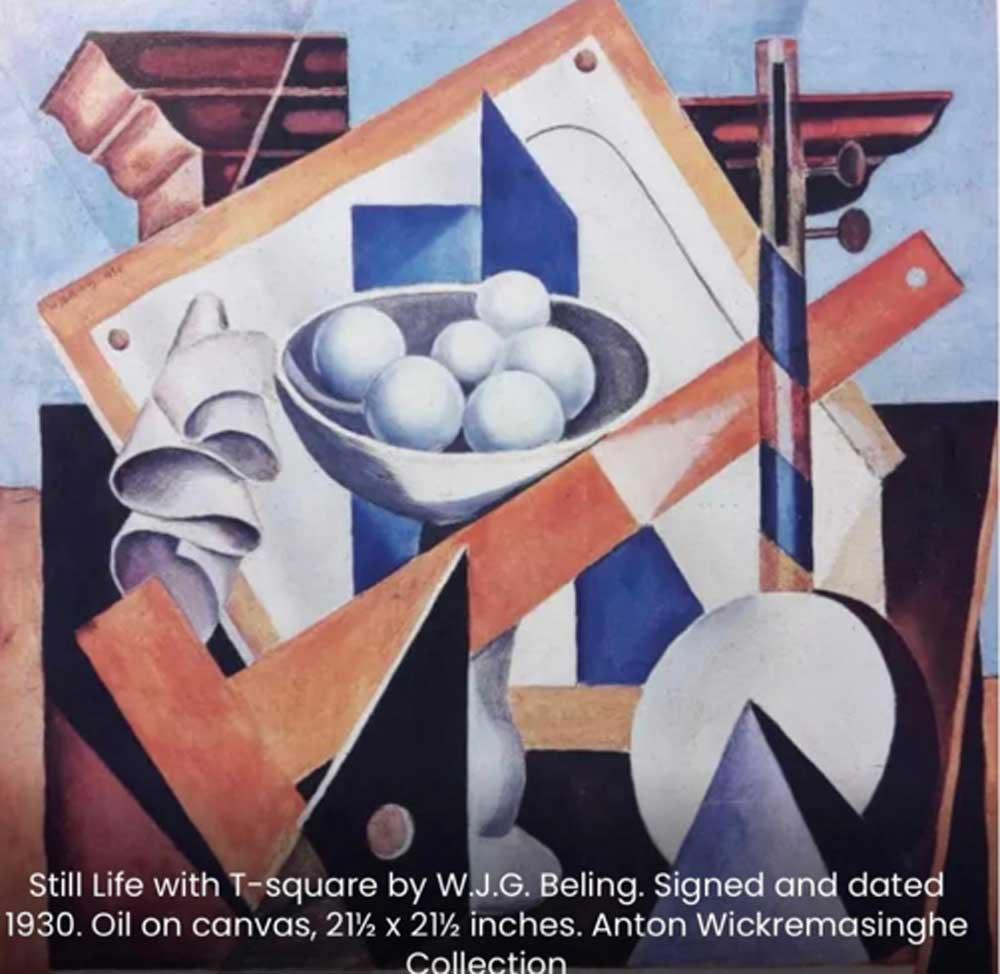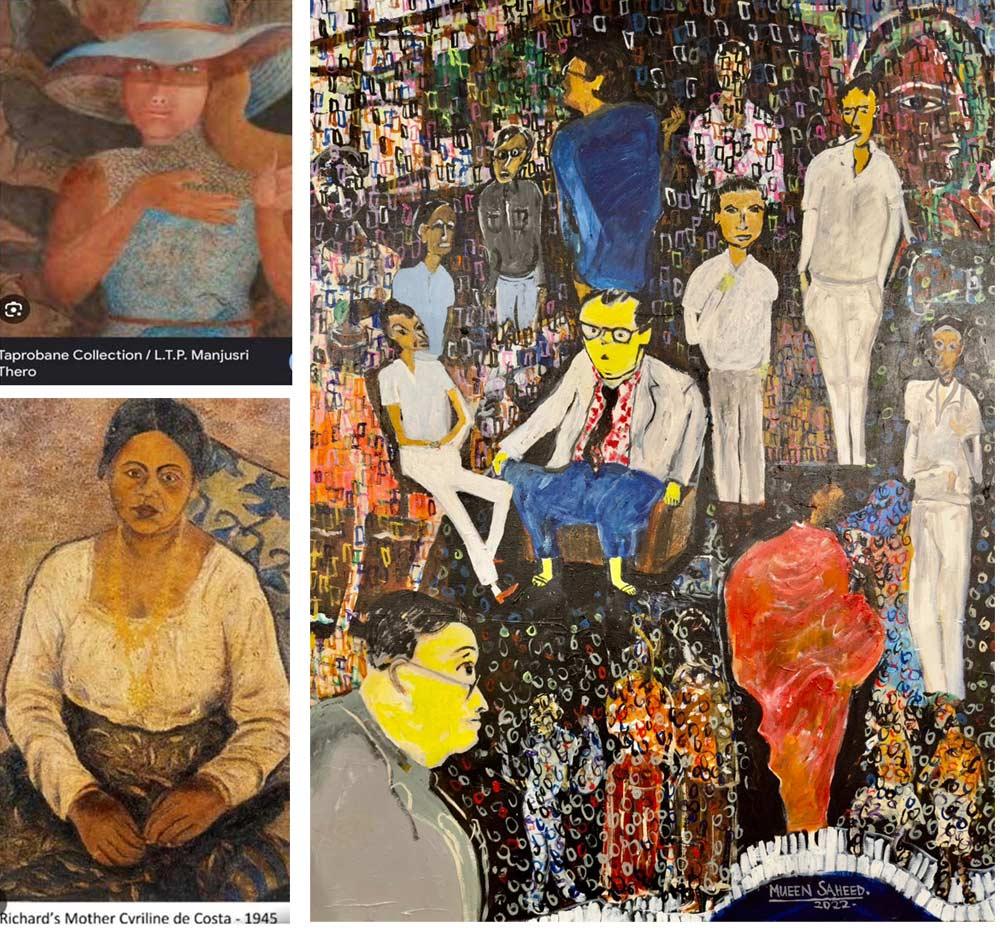Reply To:
Name - Reply Comment
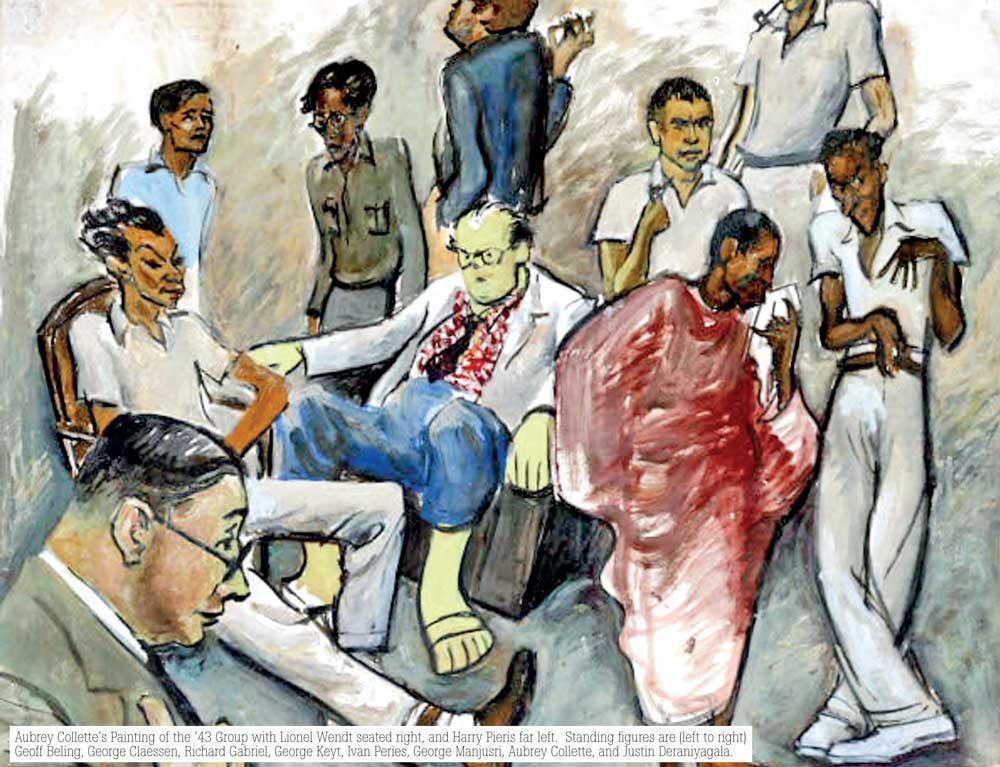
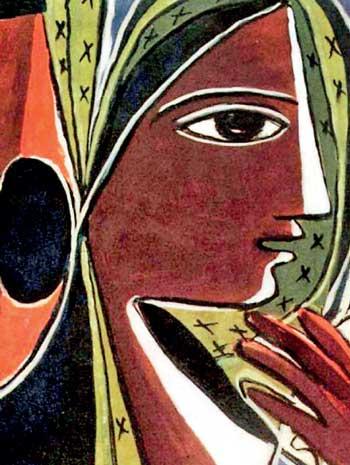 By: Angeline Ondaatjie
By: Angeline Ondaatjie
Aubrey Collette’s Painting of the ’43 Group with Lionel Wendt seated right, and Harry Pieris far left. Standing figures are (left to right) Geoff Beling, George Claessen, Richard Gabriel, George Keyt, Ivan Peries, George Manjusri, Aubrey Collette, and Justin Deraniyagala.
In the early 20th century, amidst the declining years of the Empire, a new artistic movement emerged that celebrated the beauty and culture of the island Ceylon, through art, music, poetry, and photography. Ironically, it was the Orientalist interests that first opened the floodgates to archaeological wonders and translations of historical texts like the Mahavansa, sparking nationalist sentiments and political ideologies that would define the century. The renaissance that followed witnessed a revival of art, the restoration of archaeological sites, image houses, monasteries, and temples, particularly in Kandy and the Southern provinces.
By the early 1940s, artists such as George Keyt and Beling, influenced by European traditions, and Justin Deraniyagala, who had studied at London's Slade School of Art, were exhibiting alongside renowned figures like Matisse and Sutherland. Harry Pieris, educated at the Royal College of Art and in Santinekatan under Rabindranath Tagore, fused contemporary European styles with millennia-old Sri Lankan art traditions. Lionel Wendt, trained in law and music in London and Berlin respectively, established himself as a pioneering photographer with a exhibition at the Photographic Society in London. When these talents united with those of George Claesen, Ivan Peries, Richard Gabriel, Collette, and Manjusri to form the ’43 Group, they produced art, music, and poetry that uniquely captured Ceylonese expression while drawing on modern and Asian art scholarship.
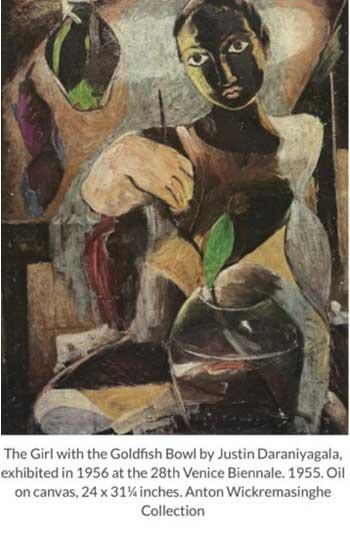 The only surviving portrayal of this diverse group was created by cartoonist Aubrey Collette, renowned for caricatures that humorously depicted politicians and eminent figures despite his limited output as a painter. Collette was a social critique of the early day after independence and worked intermittently at “The Times of Ceylon”, The Observer and the “Ceylon Daily News”. His painting of the ’43 Group, in Sapumal Foundation, remains a significant depiction of its founding members.
The only surviving portrayal of this diverse group was created by cartoonist Aubrey Collette, renowned for caricatures that humorously depicted politicians and eminent figures despite his limited output as a painter. Collette was a social critique of the early day after independence and worked intermittently at “The Times of Ceylon”, The Observer and the “Ceylon Daily News”. His painting of the ’43 Group, in Sapumal Foundation, remains a significant depiction of its founding members.
Recently, veteran artist Mueen Saheed paid tribute to Collette's iconic caricature painting by recreating a composition of the ’43 Group members. In homage to the old masters, Mueen meticulously incorporated fragments of their recognizable artworks into his painting. Known for coining "Abstract Narrative Expressionism," Mueen blends elements of story and figurative art within his abstract compositions. His work has been internationally recognized, notably displayed at the UNFCC headquarters in Bonn among other esteemed collections focusing on climate change.
Mueen’s journey as an artist began with jewelry design inspired by Sri Lanka’s natural resources before transitioning to acrylics and canvas, which he describes as offering "infinite possibilities for the soul to breathe." His recreated painting of the ’43 Group reflects his signature style, where tributes to the artists' original works are concealed within vibrant, abstract forms, weaving together diverse elements and styles that characterized the group's collective creativity.
Like the artists of the ’43 Group, Mueen's artistic talent transcends boundaries, imbued with mysticism and the serendipity of his island home. Having exhibited internationally for over four decades, Mueen remains an enigmatic and inspiring figure in Sri Lanka's visual arts scene, his influence destined to grow in recognition over time, much like that of the ’43 Group whom he honors with this extraordinary abstract composition.
Mueen Saheed’s re-creation of Collette’s painting incorporating fragments of iconic work by each of the founding members hidden within the composition.
